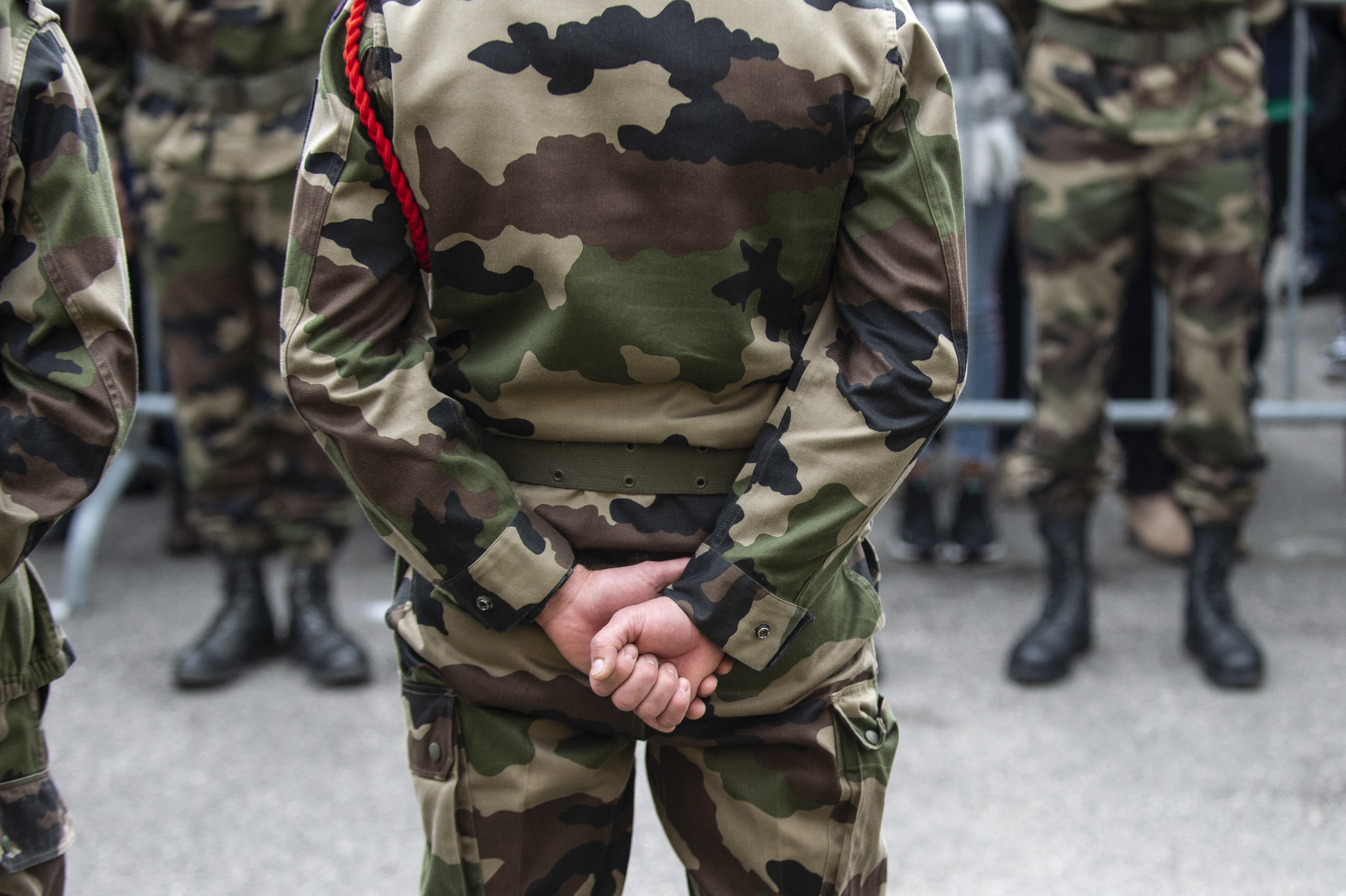Against the military signatories of the controversial platform, the Ministry of the Armed Forces has promised sanctions.
General François Lecointre, Chief of Staff of the Armed Forces, gave details to the Parisian on Wednesday: to the 18 active soldiers identified, including four officers, "military disciplinary sanctions";
while the twenty or so generals "second section" (2S) - close to retirement but who can still be recalled - will pass them "before a higher military council".
All signed the controversial text relayed by Valeurs Actuelles on April 21, in which former generals denounce the "disintegration" of the country, suggesting that the army could take action. However, active soldiers, like 2S generals, are bound by a duty of reserve. Article L.4121-2 of the Defense Code thus requires them to express "their opinions or beliefs, in particular philosophical, religious or political" only "outside of service and with the reserve required by the military state". .
They are also prohibited from “joining political groups or associations” (article L4121-3 of the Defense Code) - although they may however be a candidate in an election.
They must also be exemplary, the military state requiring "in all circumstances a spirit of sacrifice, which can go as far as the supreme sacrifice, discipline, availability, loyalty and neutrality" (article L4111-1 of the Defense Code).
To read also "Civil war" and forum of ex-soldiers: who are the signatories?
What risk do the signatories of the forum who are still active?
What about the 2S generals?
How will they be punished?
Three types of disciplinary sanctions can be applied in military law.
They will be different depending on the grade of the respondents.
“I consider that the higher the responsibilities, the stronger the obligation of neutrality and exemplarity,” François Lecointre explained in particular.
From warning to delisting
Those which fall under group 1, the less serious - for example to sanction a delay or a fight - go from the warning to the blame of the minister, indicates to the Parisian Tiffen Marcel, lawyer at the bar of Paris. These sanctions are decided by the hierarchical superior of the accused person "after a disciplinary interview". The accused person can be assisted by a soldier of his choice. Most sanctions are erased from the record after four years, but some reprimands can remain on for ten years, thus blocking a soldier in his career development.
If the hierarchical superior considers that the fault falls within the second group of sanctions, the accused individual, who can always be assisted by a colleague, then goes before a disciplinary council made up of several soldiers. It can "be excluded for a time, be temporarily lowered by one step or even be removed from the advancement table", explains Elodie Maumont, lawyer specializing in military law.
The third group of sanctions concerns the most serious faults, "such as moral or sexual harassment, consultation of a child pornography site, service offenses such as theft or embezzlement", lists Me Maumont.
The perpetrators - with the exception of the officers, see below - go before a board of inquiry, which can propose the removal of the army executives or the termination of the contract.
The member concerned is this time entitled to the assistance of a lawyer.
After a period of deliberation, the board of inquiry gives its opinion to the Minister of the Armed Forces, who then decides on the delisting.
For officers, the Superior Council of the Armed Force
If the accused soldiers are officers or general officers, they come under a particular training: the superior council of the armed force (which General François Lecointre mentioned in his interview with Le Parisien on Wednesday). "It is a specific ad hoc constitution, the composition is different from the board of inquiry", specifies Elodie Maumont. The Superior Council then gives its opinion to the President of the Republic, because it is he who appoints the officers and general officers.
This is what happened to the four-star general Christian Piquemal - one of the signatories of the platform - on August 23, 2016. By a decree of the Head of State, he had been struck off the executives of the army as a disciplinary measure for "breach of the obligations of reserve and loyalty" to which he is normally bound, on the occasion of an anti-migrant demonstration that took place in Calais.
Since 1995, sanctioned soldiers have been able to lodge an appeal. It can be hierarchical (by a letter addressed to the hierarchical authority), or before the administrative tribunal for non-commissioned soldiers or non-commissioned officers. "A judge will then check whether facts exist and whether they constitute a disciplinary fault," explains Me Maumont. If they wish, these soldiers can appeal. This is not the case for officers and general officers who go directly to the Council of State "in first and last resort". General Piquemal had thus initiated an appeal procedure before the Council of State, which rejected him on September 22, 2017.

